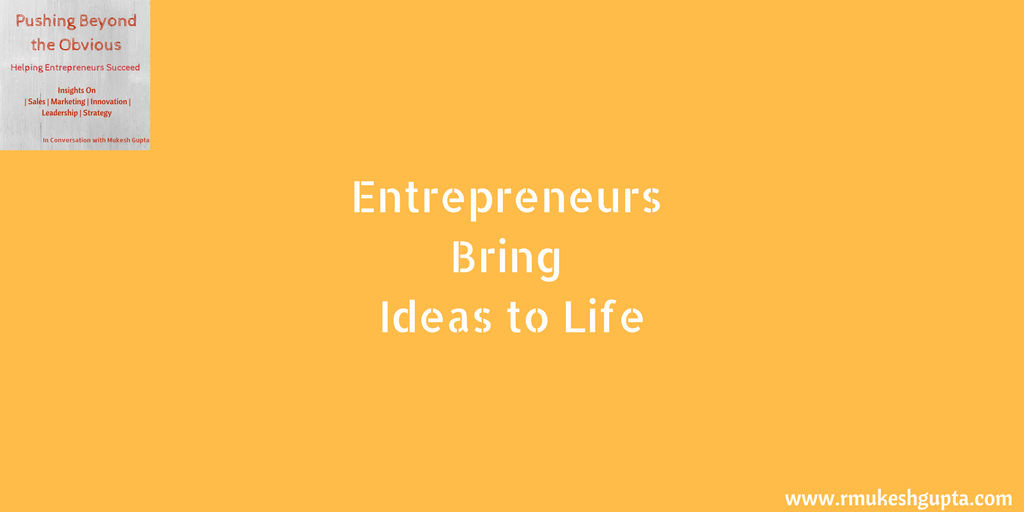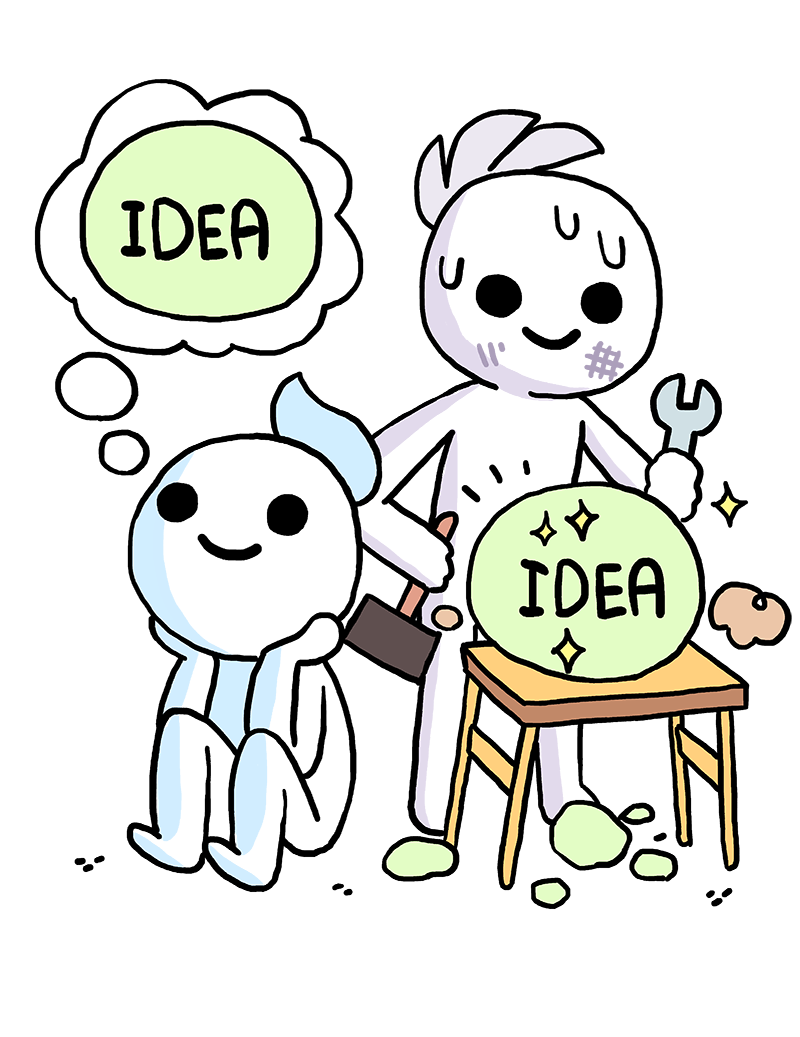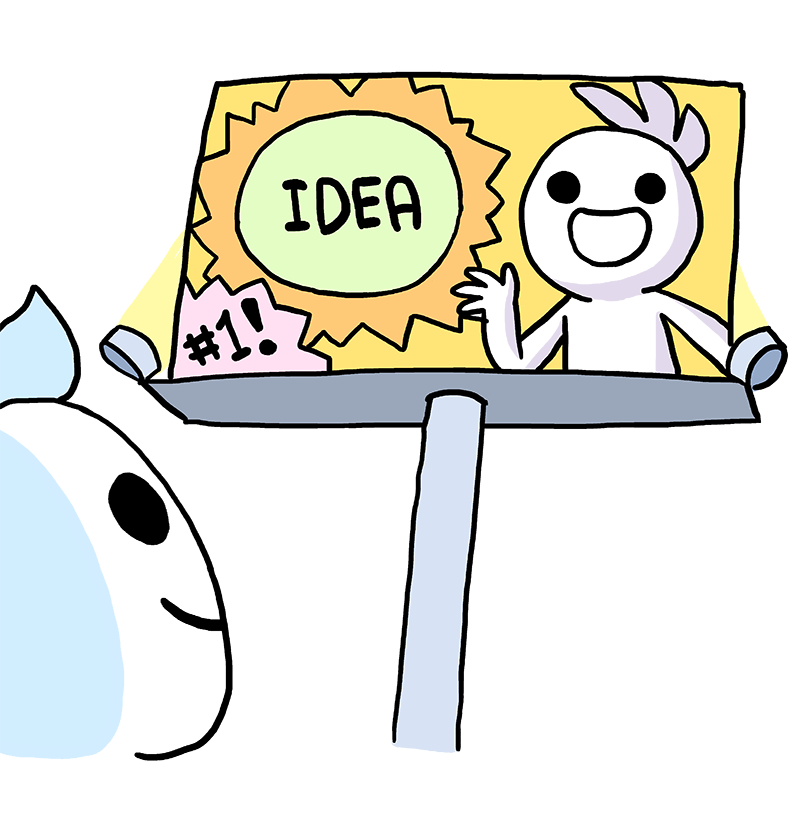Premise:
Today, we have machines which can work as assembly line workers, hotel clerks, concierge, nurses, companions for elders, lawyers, doctors, drivers, artists, journalists, gamers, coaches, board members and many more. The value proposition for businesses to employ more and more machines is strong and will get stronger with the increasing capabilities and complexities of these machines and dropping costs. Add to this, the already accelerating trend of organizations looking to hire contract employees rather than full-time employees, both to reduce cost and to leverage the global talent pool rather than limit themselves to the local talent pool.
What this means:
When we look at all of these put together, whether we like it or not, there is a good chance that we might end up either as an entrepreneur, a solopreneur or a contract employee (both are similar).
So, who is an entrepreneur:
An entrepreneur is someone who sees every challenge, complaint or issue as a potential opportunity to be explore and exploited. He/she then picks up one that is close to him or where (s)he sees the biggest opportunity and goes about to address that challenge.
What makes someone an entrepreneur:
What makes someone an entrepreneur is their belief system and what follows as action. Some of the most important belief’s that good entrepreneurs operate on are as below:
- They believe that there is a seed of opportunity in every situation. One only needs to find it to explore/exploit it.
- They are comfortable in making decisions with or without enough data.
- They have a bias towards action.
- They are comfortable with ambiguity.
- They believe that there is no failure or success that is permanent. Failure and success is an event and not a person.
- They bring in an outsider’s perspective.
- They beget change.
- They find & mitigate risks.
- They are able to move people.
Seeds of Opportunity:
Good entrepreneurs always find a seed of opportunity in everything that they encounter or experience.
When Richard Branson was mistreated by British Airways, he went on to start Virgin Airlines.
When Elon Musk is frustrated by traffic jams enroute to work, he creates a business “The Boring Company”.
When Ratan Tata sees a couple getting drenched in a motor cycle during monsoon rain, he decides to build an affordable car that doesn’t cost much more than the motorcycle itself.
These are just examples of some of the most successful entrepreneurs finding opportunity where everyone else finds fault and complains.
There are countless examples of such behaviors by entrepreneurs where they find opportunity that is hiding in plain sight which all of us miss. In hindsight, they look the most obvious to all of us, but in the moment, we miss seeing the opportunity all together. This is primarily because we are not looking for it.
Decisive:
Good entrepreneur are comfortable making decisions. They look at all the options that are available to them. They look at the opportunities that are available and are comfortable making their choices. They know that not all of their decisions will turn out to be right. They intuitively know that if you don’t decide and act, you don’t have a shot at anything worthwhile.
Good entrepreneurs also have a clear manifesto (stated or otherwise) which guides them in their decision making. For example, one entrepreneur that I know well is Kumar (name changed). He has a set of rules for people related decisions, process related decisions, resources related decisions. He uses these rules to make his decisions and move ahead. These rules can also be called heuristics. This is how we make decisions intrinsically as well. We have certain heuristics already in our brains whether we know about them or not.
Irrespective of how they make their decisions, entrepreneurs believe in that it is better to decide and move ahead rather than keep exploring all the options.
Bias for action:
What differentiates people who have a lot of ideas and true entrepreneurs is that entrepreneurs take action on the ideas that they feel have the potential. If you are an aspiring entrepreneur, this is the single most important thing that you could incorporate to take the plunge and become an entrepreneur. Even if you don’t want to become an entrepreneur, it is important to develop this bias for action in our lives. Action creates a feedback loop that can enable us to learn and move ahead in our lives.
As the old proverb goes – “Water is pure only as long as it moves”. Most things that gets stagnant get worse. This includes people as well. We need to continue to move and that movement comes with action.
Friends with Ambiguity:
Good entrepreneurs realize that there will always be certain amount of ambiguity around us. We can never be certain about anything. So, they offer a hand of friendship towards ambiguity. They learn to live with it. They never crave for full certainty. This enables them to decide quickly and continue to develop their bias for action.
The Impermanent nature of success and failure:
Good entrepreneurs know that neither success nor failure is permanent. They intuitively understand this and act accordingly. They know that by experience – they have seen and experienced success from the brink of failure and vice versa. They know that as entrepreneurs there is only one way to think and act – to continue to work towards a worthy goal and grow. They understand that the only thing that is permanent is the wheel of change.
They also have uncommon belief in their ability to be creative enough to find the seeds of success from every failure and that every success has the seeds of failure within it, which if not addressed correctly, has the potential to kill all the success.
Outsider’s perspective:
Good entrepreneurs usually bring an outsiders perspective to any problem that they are trying to address through their enterprise. It is this outsider’s perspective that gives them the edge over the incumbents. They identify and bring in new ways to solve old problems. They are able to defy conventional wisdom by using contemporary wisdom. They realize that over time, there are new technologies that become available, new processes become standardized, new thinking becomes pervasive and when you combine these together with other qualities that good entrepreneurs possess, we have a potent recipe for disruption.
As good entrepreneurs understand that there are many ways to solve any particular problem, they are not afraid to look at the problem from different perspectives. They use their imagination to look at the problem they are trying to solve and see if any of the new technologies, processes or thinking can help them solve the problem differently, They also look at the existing ways of solving a problem and are not satisfied with that. They are driven to find out if they can themselves solve the problem better, faster or cheaper. This drive is what keeps them on the lookout for potential perspectives to solve the problem.
Change:
Good entrepreneurs know that the wheels of change are always on the move. They also understand that it is way better to be one driving the change than the one that is trying to catch up with the change. So, they are always looking for opportunities to initiate change. They like to mix things up. They know that some of these will work and some of them will not. They are fine with both the results.This keeps them in motion.
Risk Mitigators:
It is common perception that good entrepreneurs are risk takers. My experience tells me that they are not risk takers at all. As a matter of fact, they are risk mitigators. They obsess on finding the risks in their decisions and mitigate them before going ahead with their plans.
They will always find a way to minimize the risk that any of their steps entail. Good entrepreneurs usually ask themselves the question – “What is the worst that can happen if I take a specific course of action?” and follow it up with the question – “what can I do to ensure that it doesn’t happen?” and “is that risk acceptable?”.
They also use the following question to limit the size of risk that they are willing to take – “What is my risk tolerance on this project? How much money/time/fame/name or whatever can I risk on this project? When is it enough and time to pull the plug?”. By knowing the maximum risk that they are willing to expose themselves to right at the start, they know when to stop investing or taking a specific course. They know when it is time to change course or accept failure. Either ways they will reflect on what happened and learn from it.
They move people:
Almost everything worth doing takes a team to do it well. Good entrepreneurs know and understand that. They possess the ability to move people and get them to see and buy into their vision, one way or other. They understand people and what makes people tick. They understand the psychology of people intuitively and use this understanding to use the right persuasive method with the right people.
As they say in India, they are adept at using Sam (logic), Dam (incentives), Dand (deterrents) and bhed (insinuation or emotional appeal) appropriately as needed.
This makes them capable of building good teams and with the right motivations. Like all of us, entrepreneurs are also humans and can make mistakes in judging people and their motivations. What separates good entrepreneurs from all the others is that they recognize their mistakes and act quickly to correct the same. This quality shows up across all the other belief systems and is a character trait of good entrepreneurs.
Conclusion:
In conclusion, true entrepreneurs are those who look at things differently than most of us do. It doesnt matter if they are working for themselves or are working for an enterprise or someone else. It is these entrepreneurs who make the world go around. They keep themselves and everyone around them in motion.
They dont keep thinking of an idea or an opportunity. They take action and bring the idea to life and then let it take its own shape and form from there on.
The following comic illustrates this really well.








